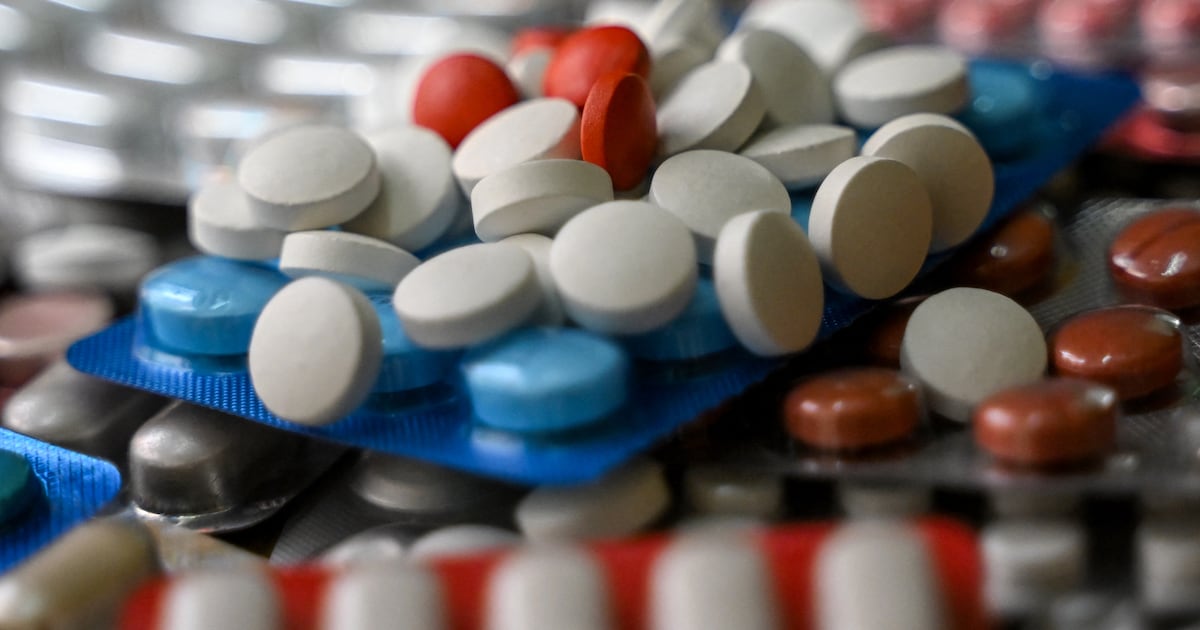The number of sedatives seized by the medicines watchdog has almost doubled in the first six months of this year, when compared to the same period in 2024, new figures show.
On Wednesday, the Health Products Regulatory Authority (HPRA) published data which found a total of 382,395 dosage units of falsified and other illegal medicines were detained between January and June 2025.
This is down on the same period last year, when over 700,000 units were seized by authorities.
Sedatives made up the highest proportion of this year’s seizures at 30 per cent, with the number of confiscated units increasing from 65,913 in the first six months last year to 114,916 units this year so far.
The increase is largely being driven by an increase in Pregabalin, which is often referred to as the “coffin tablet” due to its association with deaths among those who use it incorrectly.
There were also 11,350 medications known as GLP-1s, which are used to treat diabetes and obesity, and are promoted as containing semaglutide, liraglutide or tirzepatide.
Authorised GLP-1 prescription-only medicines are intended for specific medical purposes such as diabetes or weight management under certain conditions. Demand for them on the black market, however, has surged in recent years.
While 533 of the detained products included unauthorised tablets, pens and vials containing powder or clear liquid, the HPRA also detained a further 10,817 transdermal delivery microneedle patches which claimed to contain this medication.
“The online promotion of these unauthorised products, an emerging trend identified in early 2025, make claims as to HPRA approval as well as endorsement from national charities, hospitals and individual healthcare professionals,” the HPRA said.
“All these claims are untrue. Microneedle patches containing semaglutide, tirzepatide or any GLP-1 type medicine are not available as approved medical treatments. Results from recent HPRA testing of a sample of these transdermal patches found that they did not contain semaglutide, despite the claims made in their promotion and packaging.”
Furthermore, the HPRA said it detained 62,751 units of anabolic steroids, 60,184 units of erectile dysfunction medication and 17,454 of analgesics or painkillers.
Melanotan 2, a drug that gives skin a more tanned appearance, has been increasing in prevalence in recent years, the authority said, with six units found in 2020, and 573 being detained in the first six months of this year.
The HPRA said 2,820 websites, webpages, e-commerce listings and/or social media pages selling falsified medicines were amended or shutdown in the first six months of 2025, surpassing the total for all of last year.
The HPRA works in partnership with Revenue and the Garda to carry out seizures.
Gráinne Power, director of compliance at the HPRA, said the organisation remains “deeply concerned” by the risks members of the public are taking in obtaining illegal medicines online.
“Prescription medicines obtained online or from unregulated sources may be counterfeit, falsified or contaminated. These factors pose a serious threat to the health of anyone who uses them,” she said.
“The HPRA strongly advises the public to safeguard their health by only using prescription medicines under the guidance of a qualified healthcare professional and by sourcing products authorised for the Irish market from a registered pharmacy.”
Ms Power added that anyone who has purchased prescription medicines from unauthorised sources should “stop using them immediately and seek advice from a healthcare professional if they have any concerns”.

